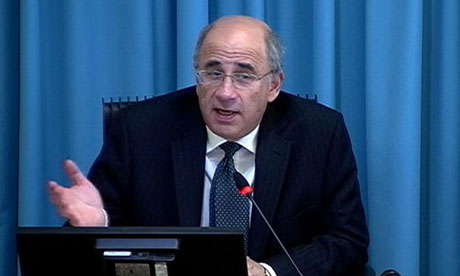This topic is the second half of your exam essay on media regulation.
We discuss how and why was IPSO and IMPRESS were formed to regulate the press, and why they replaced the PCC (Press Complaints Commission).
You start by finding out about IPSO. Explore IPSO's website to learn what kinds of newspaper titles IPSO regulates. Look at 'rulings' to see what kinds of issues IPSO has ruled on - are these serious issues related to harrassment, invasion of privacy, libel...or smaller breaches of the code of ethics related to accuracy? What kinds of action ('outcome') or sanctions were imposed? IPSO presents a picture of an organisation that regulates the press effectively and fairly. Not everyone agrees. For example, Hacked Off has describes IPSO as 'toothless'.
Hacked Off describes itself as a campaign for a free and accountable press and their main .
In class, you read The Guardian newspaper's account entitled Leveson Inquiry: the essential guide about the phone hacking scandal surrounding
The News Of The World.

1. The issue at a glance
2. Why is it being talked about now?
3. A brief history of press regulation
4. How is the press regulated now?
5. What does Leveson have to do?
6. The options and key arguments
7. What about the internet?
8. What happens next?
What is meant by the term 'free Press'? Does it mean that the Press are free to print anything?
What is meant by the assertion that the Press has an important role in democracy and that 'it holds power to account'?
The press is sometimes called The Fourth Estate: this term ‘Fourth Estate’ makes implicit reference to the earlier historical division of the Three Estates of the Realm: the clergy, the nobility, and the commoners.
Do you know of any investigations by the Press that have exposed wrongdoing - 'shone a light' - and held power to account?
Movies about press investigations / reporting:
The Post (dir. Stephen Spielberg 2017) about the Pentagon Papers - trailer here
The Killing Fields (dir. Roland Joffe 1984) - trailer here
All The President's Men (dir. Alan Pakula 1976) - trailer here
Frost / Nixon (dir. Ron Howard 2008) - trailer here
Network (dir. Peter Finch 1976) trailer here
Spotlight (dir. Tom McCarthy 2015) - trailer here
The Social Network (dir. David Fincher 2010) - trailer here
Nightcrawler (dir. Dan Gilroy 2014) - trailer here





No comments:
Post a Comment